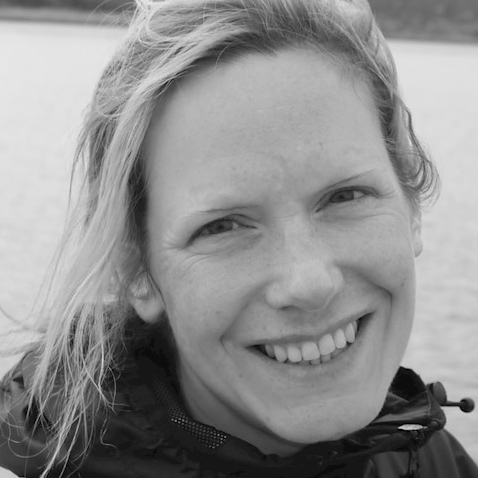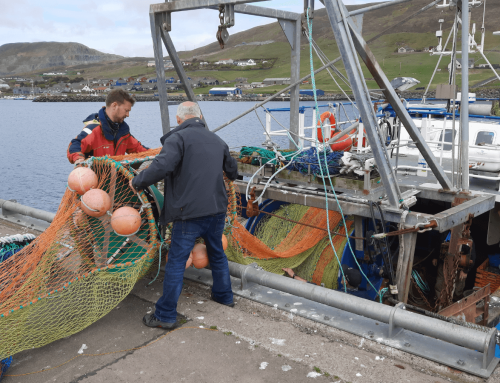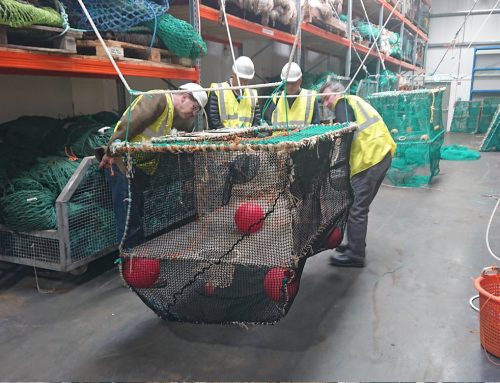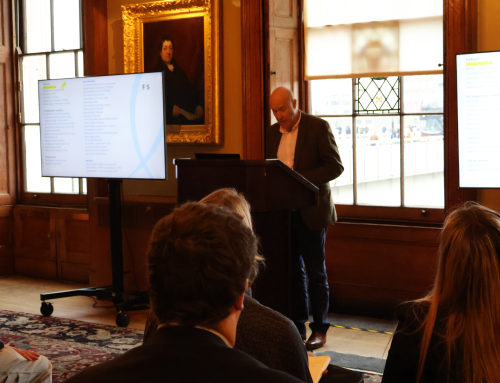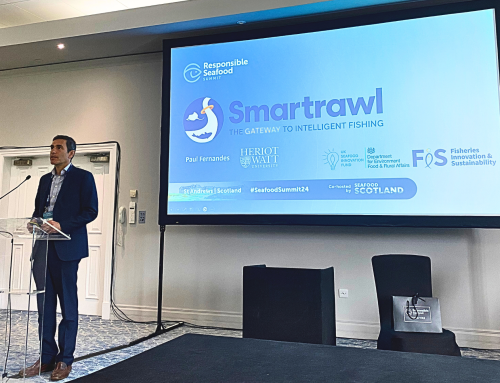We’re pleased to announce Kara Brydson as the new Executive Director for Fisheries Innovation and Sustainability (FIS).
In an interview with Fishing News, which can be found here, Kara described her enthusiasm about taking up the post: “Being Executive Director of FIS is a natural culmination of the last 20 years of my working life. FIS brings together some of the real big hitters from across the Scottish fishing industry, to lead a programme of problem-solving science to support the fishing industry and its supply chain – it’s a brilliant organisation and I am delighted to be joining. FIS engages lots of influential people with a genuine interest in the success of Scottish fisheries. It’s not just the Board and the Technical Advisory Council but all those from across the industry who come up with ideas, provide feedback and take an active part in Scottish fishing’s future”.
Kara brings a wealth of relevant experience to her new role having held positions at the Scottish Organic Producers Association and the International Fund for Animal Welfare before taking up the mantle of Head of Scottish Marine Policy at the Royal Society for the Protection of Birds for 11 years and since 2015 as Programme Manager of Seafish’s Responsible Fishing Scheme. Her combined 20 years of working in the marine sector have ensured that she has a broad knowledge and experience of fisheries where she has increasingly worked with NGOs, government, industry and scientists at EU advisory council level through to marketing and inshore fisheries groups. While managing the Responsible Fisheries Scheme she had the opportunity to work with fishermen, processors, retailers, fisheries organisations, indeed throughout the whole fishing supply-chain.
One size cannot fit all sectors of the fishing industry
The breadth of participation that makes FIS unique particularly attracted Kara to a job that brings all of her experience together: “People tend to think of Scottish fishing as one industry, a homogeneous group all doing the same thing, facing the same challenges and gaining the same rewards. Often, what’s misunderstood is the vast amount of expertise, innovation and knowledge that goes into fishing. I’m from a farming family and I know there is no such thing as a typical farmer; I also know there is no such thing as a typical fisherman. The media often portrays the industry as a single type of fisherman following a generalised form of fishing. The reality is that the fishing industry contains a surprising variety of fishing, fishermen and the infrastructure and supply chain they support. The industry is a collection of businesses where one size cannot possibly fit all, a solution for one sector might be a challenge for another. FIS wants to expand understanding of the fishing industry, especially in Scotland, and it’s not just politicians and the media that need educating, even between seafood sectors there can be misconceptions”.
As Kara points out, much of the conversation around fisheries at the moment concentrates on Landings Obligation and Brexit consequences, but there are many other issues facing fishermen and the supply chain. Accessing crew and ensuring fishing is seen as a career with a future, and crew welfare are topics dear to the hearts of many across the industry, then there are ongoing business concerns about the costs of quota, equipment, fuel and bait. Market access is a growing worry as the political landscape changes, and at a local level are the social and environmental issues that impact on fishermen on a daily basis. Uppermost in Kara’s mind and a message she wants to spread far and wide is: “Fishing is not just about fish. It’s about food, of course, but also health, technology, jobs, and communities, and this is where FIS fits in. The big picture, the political aspects are, of course important, but these other societal issues are fundamental, and we all need to get to grips with them”. FIS has an excellent track record in the few years since it was set up in 2014. By the end of 2019 it will have delivered more than 20 peer reviewed projects with an overall spend of more than £1.5 million; the projects include investigations into novel in-water selectivity, Nephrops survivability, fisheries resilience to climate change, industry self-sampling, and management in shared seas. These projects are not only about collecting vital data, they are about informing real changes in technology, management and fishing methods.
Kara does not see the fishing industry as inward-looking and, as well as wanting to hear ideas from within the industry – which is already full of innovators and early adopters – she is keen to look beyond to other industries that may have technologies and practices that would benefit fishing by increasing profitability and sustainability. “Fishing is a global industry and FIS is already in contact with colleagues around the world: We can learn a lot from other fishing nations, and we certainly punch above our weight in Scotland, so we have much to give as well. It is so exciting to be part of that success.”
John Goodlad, Chair of Fisheries Innovation and Sustainability is delighted that Kara has taken up the position of Executive Director: “Kara brings a wealth of relevant experience to FIS which can only take the organisation to new levels. Working alongside our Board to unearth the challenges facing the Scottish fishing industry across the entire supply chain, and by guiding scientific approaches to solving those challenges, Kara’s previous track record at many levels and across many topics will be a tremendous asset. I look forward to working with Kara to provide knowledge and ideas, through our commissioned projects, to continue to contribute to the success of Scottish fishing and those that work in the industry.”

